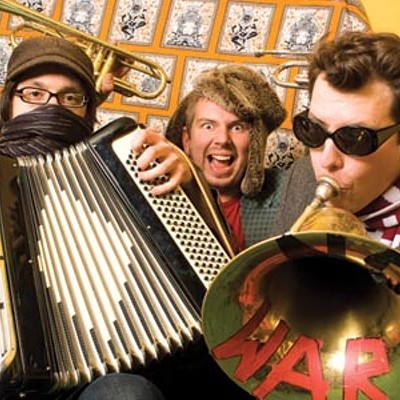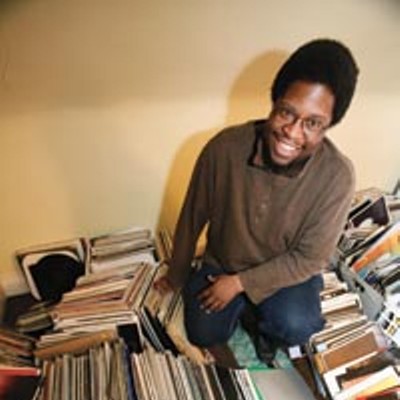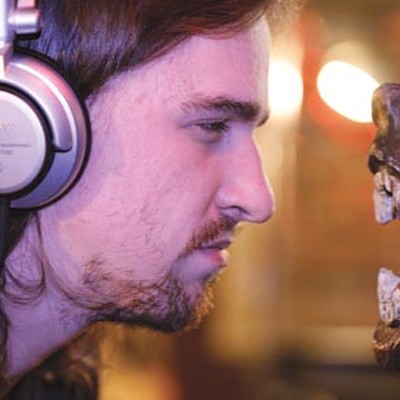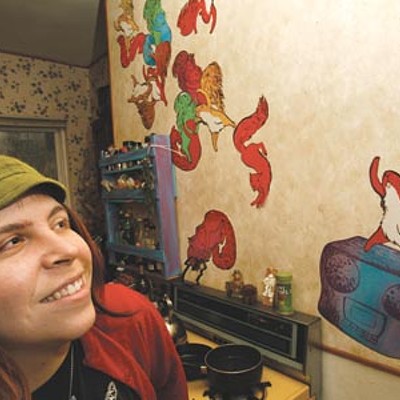When I reach J. Sands on the horn, at his home in Baltimore, he's reading the Pittsburgh Post-Gazette online. He hasn't lived here in years, but he still claims it, reps it, loves the Steelers and all 'n' 'at. He's reading about the arrest of Leslie Mollett, accused of killing state policeman Joseph Pokorny.
"Yeah, this dude is done," says Sands. "Shooting a police officer and killing him? Yeah, he in trouble."
Sands' prophecy is mild and far from mistaken. Cops got the guy. And Sands, who grew up all throughout the North Side for some 20-odd years, ain't been gone that long to not know what happens when the cops get their guy. No good news in the paper, though. For that he relies on his family.
When our interview is done, he says, he'll be on the sticks with his PlayStation, or doing some cleaning around the house for his wife. As a confessed "househusband," Sands says he's good at the wash-the-dishes/clean-the-bathroom thing. He's just a regular dude.
Which is fine, except that J. Sands and his partner, DJ J. Rawls, just dropped a new LP, Good Music. They're fresh off a promo run that started in Pittsburgh, at the Pittsburgh Deli Company in Shadyside, and just wrapped up for the year in Las Vegas, after taking them all through D.C., Virginia, New York, Texas and California. And that's nothing, really. In the past five years they've traveled as far away as Tokyo, Amsterdam, Paris and Prague, touring with true hip-hop legends including Talib Kweli, Hi-Tek, Mos Def and J-Live.
Sands and Rawls began working on Good Music in 2002, and expected to release it that year. They had already dropped Hip Hop, which made them official on the national scene, recording with underground heavy-hitters like Kweli, Usef Dinero and Rubix. That year they also dropped The Catalysts Files, which was a collection of pre-Hip Hop tracks that only further solidified them among audiences who don't need cable television or "Hot" radio stations to tell them what's worth consuming.
Yet, when they started shopping Good Music, labels balked. Reasons being, "because it wasn't exciting," says Sands. "There was no buzz. I ain't shot nobody recently and I ain't been shot, so ... " He's not talking about the Roc-A-Fellas and Cash Moneys; he's talking about the indie-independent labels that were passing. Let Sands tell it, these small labels are now looking for the same gimmicks as the majors.
[break]
When I catch J. Rawls he's in session at school in Columbus, where he lives. When not behind the wheels, Rawls is a fifth-grade schoolteacher, teaching all subjects. Yet the first thing out his mouth is a question about whether there are any gigs he can do in Pittsburgh, the city he loves.
Rawls and Sands formed B.U.K.A. Entertainment, their own record label, through which they're pushing Good Music. It's named after their man Buka, who's currently locked up. At the time they launched B.U.K.A., Rawls was a rapper and beatbox artist; then he started dabbling in his pops' vast record collection. Sands was a rapper looking for a complement to make beats and spin wax. Today, Rawls is still spinnin' and making beats, but Sands' own deejay game is off the ground, doing a few gigs at bars and clubs in Pittsburgh and Baltimore, all in the name of good music.
It's the frustration of rap artists being packaged off as "underground," "backpacker" or "gangsta" that led Rawls and Sands to come up with the "good music" concept (which is also the name of Kanye West's label, rostering Common and John Legend). It doesn't matter "if it's underground or not, we just independent," says Rawls. "We don't have no big budget, but that's not by choice."
Neither does their album have tie-ins to book deals or video games like Fiddy -- even though Rawls loves to teach and read, and Sands loves to play. There's no metal masks or cable-channel plug-ins to boost them either, like MF Doom. There's just the music: the Latin strumming of "En la Ciudad" and Sands' integration of Spanish fly language with Ebonics; the "100 Bar Dash," featuring lexicon legends Mr. Complex, El Da Sensei, Wordsworth, Lil' Sci, Thes One and PA Flex. Much like ATCQ's Love Movement's "Rock, Rock Y'all", which also featured freestyle phenom Wordsworth, as well as Punchline, Jean Grae and Mos Def, "100 Bars" brings to light those artists who fail to splash the mainstream for lack of a gimmick. This is family, the kind you rely on when you want good music.
















